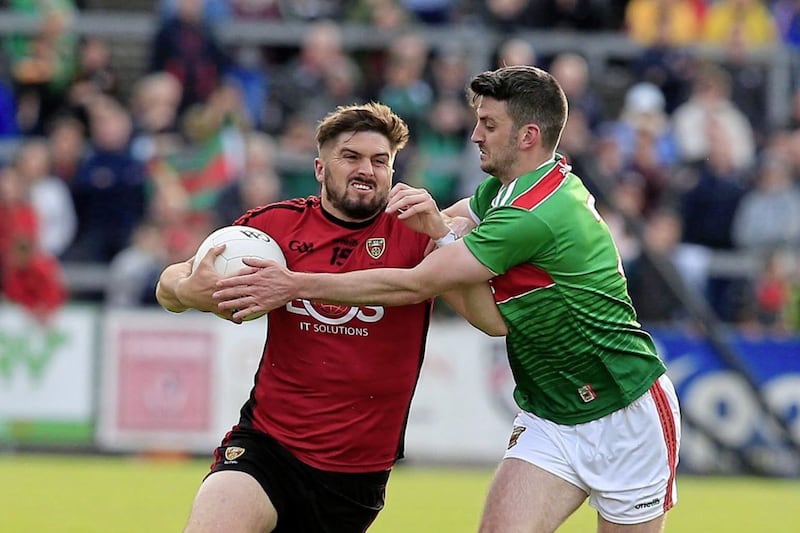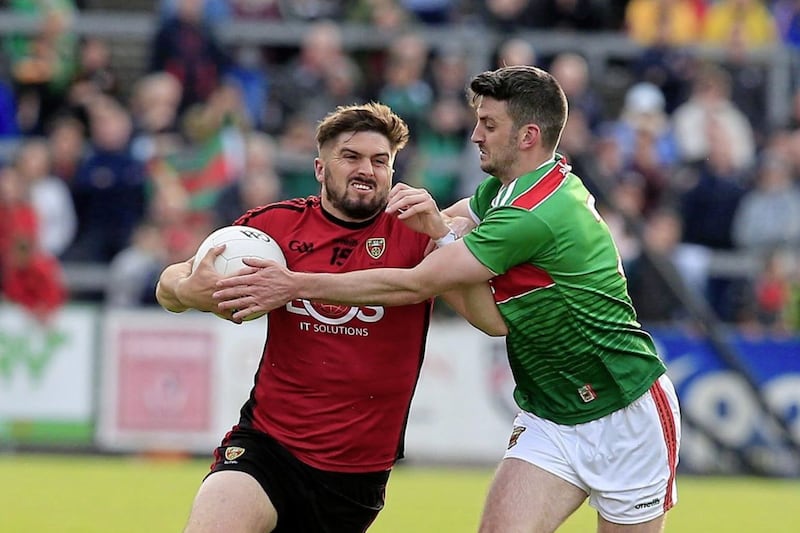DOWN forward Connaire Harrison fears a behind-closed-doors Championship would feel like a series of challenge games - and admits players face some big decisions when the green light is eventually given for inter-county football to return.
Irish health minister Simon Harris stated last weekend that it was “highly unlikely” mass gatherings would take place this year as a result of the ongoing coronavirus crisis.
And although GAA director of communications Alan Milton has since claimed the prospect of playing games without supporters “has not been seriously considered at this stage”, it could be the only option available if some form of Championship is to take place towards the end of 2020.
In the soccer world yesterday, Bundesliga chiefs signed off on a May 9 return to action - subject to government approval - with all players in Germany’s top two divisions requiring Covid-19 testing alongside stringent hygiene precautions, while a maximum of 322 people allowed into stadiums.
Although a huge financial outlay, around £2.2m, has been made to facilitate that restart, it will give some hope to other sporting organisations that a similar resolution can be reached – even if playing behind closed doors is “not the ideal scenario”.
“There’s a lot of people gets a lot of enjoyment out of going to watch football… if you were playing behind closed doors it would be like a challenge game,” says Harrison, who had just returned from injury before a halt was called to the National Football League with two games remaining.
“When you go out on a Championship day, you’ve maybe 15-20,000 there, sometimes you’re hardly fit to hear what’s being said from the sideline where you’d be able to hear every word in an empty ground. It’ll obviously take away from it.
“Imagine you’re going down the home stretch maybe chasing a game, there could be a kick of a ball either way, the crowd lifts and that gives the whole team a lift – you seem to find another gear. It will affect the momentum of games.
“At the same time though, it’s looking like that’s the way it’s going to pan out if anything happens at all.”
Ensuring the safety of not just players but also management teams and officials to facilitate a return to action will be the main priority when the time comes, with the challenges facing amateur players likely to be more complicated their professional counterparts.
And Harrison feels some players will look at “the bigger picture” and decide it isn’t a risk worth taking.
“You’re going to have 30 players in a squad, everybody’s coming from different households, different places –how do you go about putting those lads onto a field to play against each other?
“You’ve 30 lads touching a ball, you could have lads spitting on their hands, touching the ball, touching other players… these are the kind of issues you’re looking at. Your family are going to be asking ‘should you be going to play football? Should you be interacting with all these players at training, lads from other counties then coming back to the house?’
“It has to be safe for you to do that, and maybe you would have to sit back and look at the bigger picture and realise everybody has a family, is it safe for me to go and play football and come back to them and possibly pass something on?
“That’s what’s going to decide whether we take to the field or we don’t. Unless you knew it was safe, you wouldn’t play. Nobody’s going to take that risk.”







